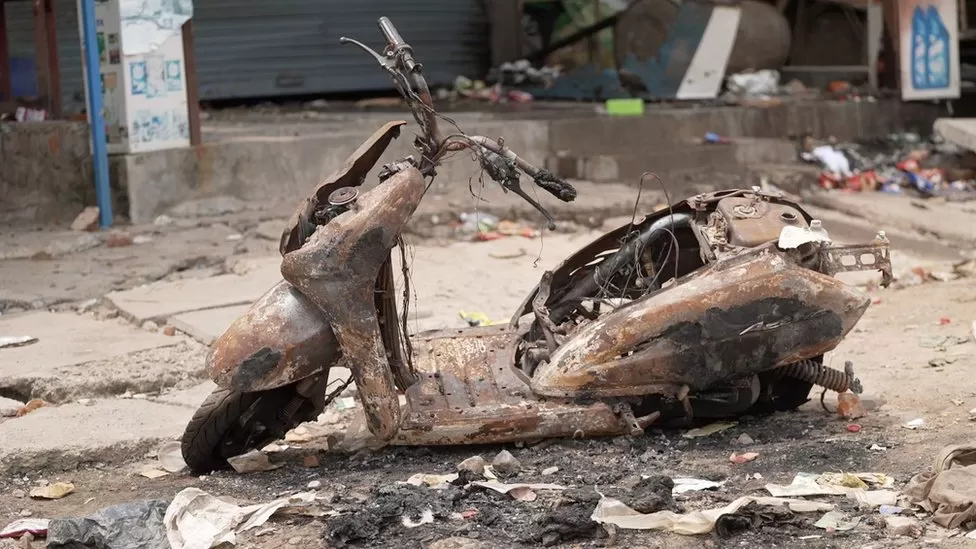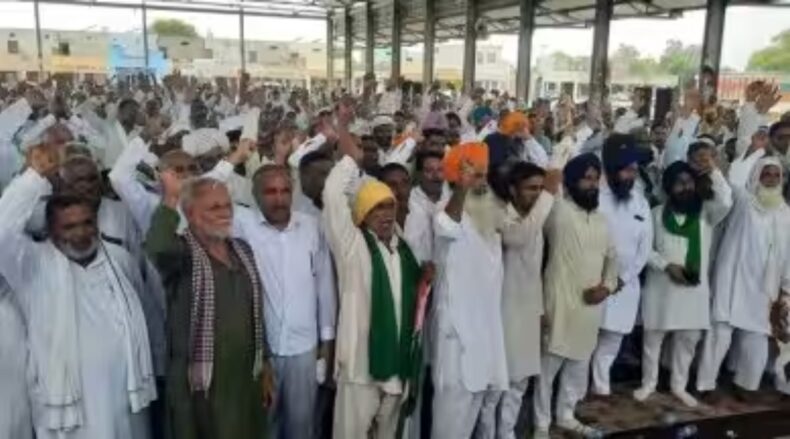On Wednesday in Haryana, leaders of farmer organizations and village councils (Khap panchayats) collectively said that they would not let anyone touch the members of the Muslim community. They also pledged not to participate in any form of caste or communal violence and would attempt to bring peace in Nuh.
The leaders made an announcement declaring that they would take measures to prevent any harm or mistreatment of members of the Muslim community. This decision came several days after communal clashes broke down in the Nuh district of Haryana.
These leaders had assembled in Baas village located in the Hisar district. Their main purpose was to emphasize their intention in addressing and countering the communal violence that had emerged within the state.
The farmer assembly, which witnessed participation from nearly 2,000 farmers representing Hindu, Muslim, and Sikh communities, marked a notable event in Haryana. It was the first large-scale gathering of this nature to take place after the recent incidents of violence.

This event held particular significance due to the backdrop of concerns over threats to the Muslim community and reports of certain village councils passing resolutions to restrict entry for minority community members into their villages.
Farmer leaders pledge to protect Muslims
In reference to the threats faced by members of the Muslim community, farmer leader Suresh Koth made a statement saying that people from Muslim community are standing here and no one can touch them while adding that all Khaps would be responsible for protecting them (Ye khade mussalman, tok ke dikha do). Koth, who is also a village council leader from Hisar district, had played a vital role in the farmers’ protest against the three farm laws. Koth also clarified that reports about bans on Muslim entry into specific villages were inaccurate.
During the panchayat held on Wednesday, farmers also collectively pledged not to participate in any form of caste or communal violence. Instead, they committed themselves to endeavors aimed at restoring peace in the Nuh district. The assembly also demanded appropriate actions be taken against those responsible for inciting people through videos posted on social media platforms.
According to Koth, their initial plan had been to organize a convention in Baas village on August 9 to discuss agricultural issues. However, due to the prominence of the recent violence in Nuh, Koth expressed that addressing this issue had taken precedence. It’s noteworthy that the venue of Wednesday’s event, Baas village, is situated in districts where farmers had actively participated in protests against the three farm laws during 2020-21, which were subsequently repealed.
The farmer leaders are taking a proactive role in fostering communal harmony, influenced by the support they garnered from various communities during their protests against the farm laws. During their protests at the Khatkar Kalan toll plaza in Jind district, the farmers celebrated festivals from different religions. On Eid-ul-Fitr, they even conducted prayers at the Khatkar Kalan protest site in 2021.
Farmers from Mewat actively participated in the “pakka morchas” or permanent protests established at the borders of the national capital during their agitation.
The farmer leaders hold the belief that their nearly 13-month-long protest has not only amplified their cause but also strengthened the bonds among people from diverse communities.
The Punjab and Haryana High Court took suo motu cognisance of the situation in Nuh following violent clashes that resulted in the loss of six lives and extensive damage to property. This upheaval led to a state of distress in Nuh, Gurugram, and surrounding areas.
On August 7th, the court issued an order in response to the communal conflict in the Nuh district of Haryana, putting a halt to the ongoing demolitions. In this order, the court raised concerns about the potential targeting of structures belonging to a specific community through the use of bulldozers, and said that ‘law and order’ was being used as a cover-up reason for the demolitions by the state.
In the 4 days of the demolition drive before the court order, more than 350 shanties and 50 cement structures were brought down.
Many individuals who lost their homes claimed that they had not received any prior notices about the impending demolitions. The demolitions attracted considerable attention due to their perceived communal undertones, with several politicians asserting that they were unfairly aimed at the Muslim community.












